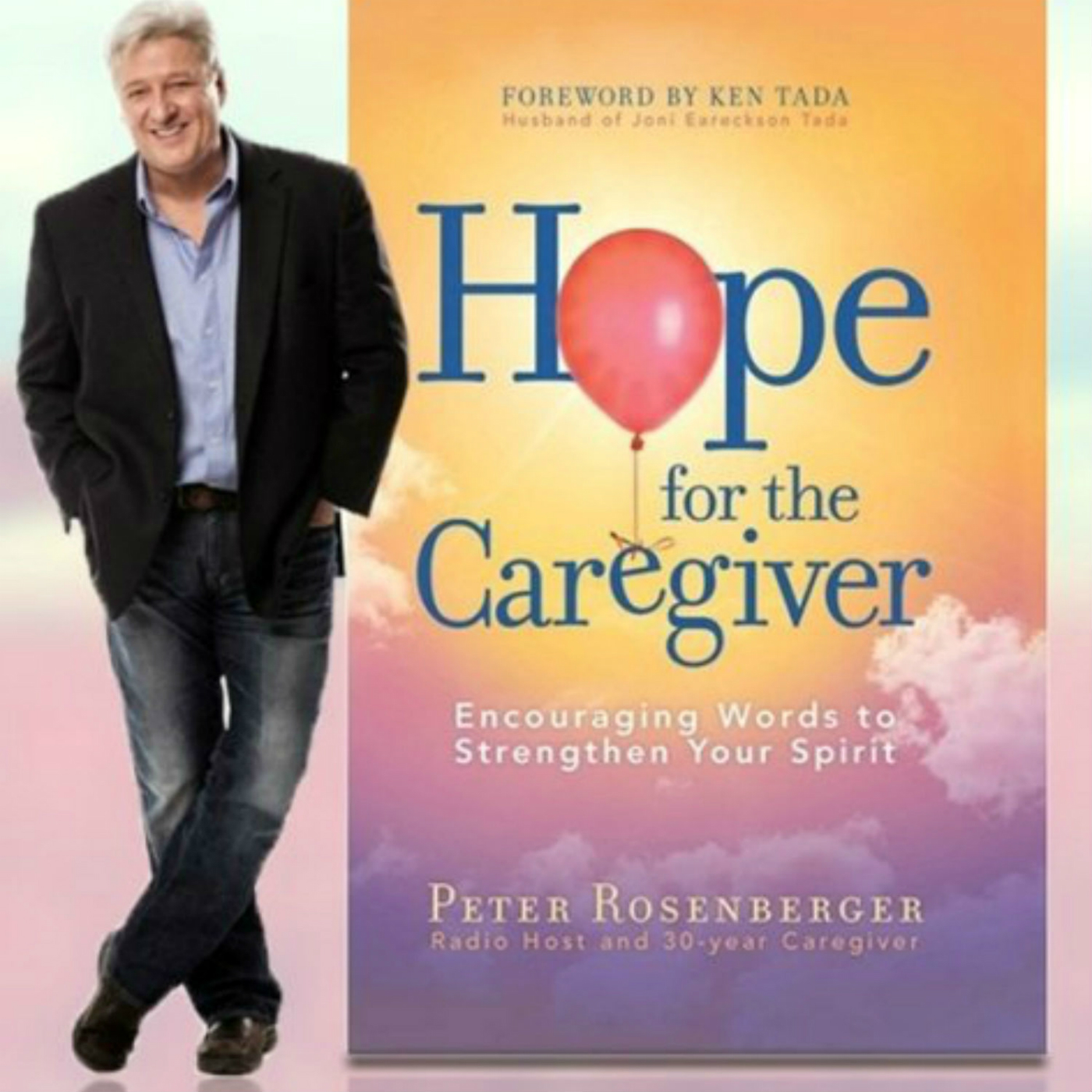Episodes
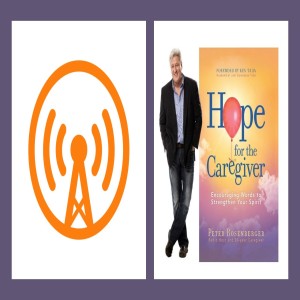
Saturday Sep 07, 2019
The Obligation Trap for Family Caregivers.
Saturday Sep 07, 2019
Saturday Sep 07, 2019
From HOPE FOR THE CAREGIVER: Sept 9, 2019
“I’ve Got To…,” “I Need to…,” “You Don’t Understand, I Have To….” “It’s My Obligation to …”
These are all statements made by all caregivers at some point, and, sadly, all too frequently. The feeling of obligation drives us to push ourselves to dangerous stress levels for our health, finances, and emotional stability. The way we can push back is to recognize that we don’t own the problem. Think about it, did you cause the problem? Can you fix this issue?
Stewardship Vs. Obligation
Feeling obligated can quickly take us into resentment, which will only compromise our ability to live healthy lives, as well as serve as healthy caregivers. In reality, as caregivers, we’re stewards and powerless to fix the suffering of our loved ones. Instead of owning the problem, we can instead own the concept of stewardship. Doing so frees us to accept we are doing the best we can with what we have.
Furthermore, adopting an attitude of stewardship, helps us breathe easier and treat ourselves with mercy—all of which equips us to be a better caregiver.
Sponsored by:
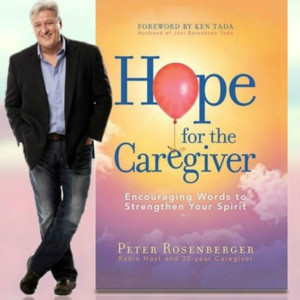
Friday Sep 06, 2019
Friday Sep 06, 2019
Marlene in Indiana struggles as a caregiver for her husband who has lung cancer. Although she cares for her husband, she also helps take care of other family members.
Marlene is living in the fear of tomorrow, next week, and next year.
We helped point her back to today and a path towards help for her.
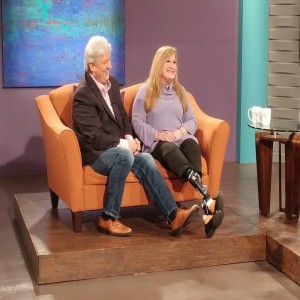
Thursday Sep 05, 2019
"If Your Heart's Troubled, Then What's Going On With Your Body?"
Thursday Sep 05, 2019
Thursday Sep 05, 2019
The heart of a caregiver is often deeply troubled. This is why we do the show. We know that if we can speak to fear and chaos in our hearts, then it helps set the stage for the body to get healthier as well.
Not just the body, but the mind, the marriage, and the money. So many of our external challenges reflect an internal problem ...of the heart.
Hope for the Caregiver is not just the name of my book ...or the radio show. Rather, HOPE FOR THE CAREGIVER is the conviction that we as caregivers can live a calmer, healthier, and even more joyful life ...as caregivers.
How are you feeling?


Tuesday Aug 27, 2019
Ernie and his granddaughter.
Tuesday Aug 27, 2019
Tuesday Aug 27, 2019
Excerpt from HOPE FOR THE CAREGIVER on American Family Radio: 8/24/2019
It’s starting to dawn on a lot of us …some of who are newer to this, not so much, but a lot of us have that realization, “Man, this thing is not going to have the happy ending, it's not going to have the happy ending that we want, it's not going to get pretty. In fact, it's going to probably get worse.”
And what do you do with that information? What does hope look like in that?
And as I've struggled through these things and I've worked through these things myself, I determined I was going to offer this to my fellow caregivers to ways that they can point them to safety, point him to high ground where they can just catch their breath. And I got people that call in to the show that want to kind of insert their story into it, you know, “I've been taking care of my children,” but they're not special needs children, they're just children, I've got children.
But this is not “Hope for the Parent;” this is not “Hope for the Homeschooling Parent,” …this is Hope For The Caregiver.
This is not to teach you how to care-give, this is not to do any of those things, this is Hope For The Caregiver, who… that one person who is up night after night after night doing laundry.
Back and forth at doctors’ offices.
Looking at the bills mounting up.
Listening to somebody who…they are wiping their bottom… and getting cussed at by the same person.
Somebody whose father abused them as a child and now they're having to help him go to the bathroom.
This is who the show is for …to let you know that God has not forgotten you, He has not abandoned you. This is not some kind of curse from God, that's not what's going on here.
And this is your time.
As it was said in the scripture at the beginning of it, “Anxiety in a man's heart weighs him down, but a good word makes him glad; a good word makes him glad.”
How many of you right now are feeling so anxious, that are so weighed down? I can't take this burden off of you, you can't take mine off of me, but what we can do is help each other adjust this pack a little bit easier, and what we can do is we can build each other up and equip each other to be stronger as we carry it. What's happening is we're trying to muscle our way, white-knuckle our way through this and we're getting weaker by the day. I get that.
And so, what I'm trying to do on this show, what American Family Radio is helping me do is to come along and strengthen you for this journey. That's what it means when we bear one another's burdens. We're equipping each other to do this. We're not going to let you just get crushed by this. We want to point safety and we want you to know that your peace is available, it's right now, that peace that you're craving is available right now!
You don't have to wait for the funeral to be over… to have peace in your heart, you don't have to wait for that magical surgery that's going to fix this or that, whatever that treatment is.
You don't have to wait for that you don't have to wait for your loved one to stop acting the way they're acting, to stop drinking …stop putting drugs into their body.
You don't have to wait for that to have peace, you can have that right now; no kidding, right now.
It's not going to come without tears and it's not going to come without reinforcement and work and somebody pointing you to that place.
And I floundered around for so many years where people came… when people came up to me and just offered me stuff that we just looked at them like, “What's the matter with you?”
But I was young …and I didn't know much, and I didn't know how to respond to that. I didn't know how to push back on that and say, “No, this is not wrong.”
And bad theology has caused more damage for people, and we've got a lot of bad theology going on out there. So, when we sit down here with this network we said:
“You know what? We're going to put good theology in a way that caregivers can really understand into their hearts. We want to make sure that you clearly understand what the gospel means in this situation, that even as you are doing the things that you're doing, changing a dressing or a colostomy bag or picking up your special needs child and getting them to the toilet, that even in those moments when your heart is breaking, that the peace of God which transcends all understanding can still flood your heart in those moments; that's what the show is about.”
888-589-8840, 888-589-8840.
Peter: Ernie in Alabama. Ernie, good morning, how are you feeling?
Ernie: Good morning at Mr. Rosenberger. I should call you brother Rosenberger. Thank you for taking my call.
Peter: Well, you can just… how about you just call me Peter? You can just call me Peter.
Ernie: Peter, well, thank you thank you, Peter, thank you for your program, it's amazing. It has to be providential, I was telling the lady when I call that we’re caregivers for our granddaughter along with her mother. She's a teacher and so we take care of her, and she's 5 and a half years old, she’ll be 6 in October, so she's almost 6, and he suffers from FOXG1 syndrome. And FOXG1 is a deletion of 1 little gene in the 14th chromosome, and the symptoms are that she cannot… she cannot fit by herself nor stand by herself, she can support weight, but you cannot walk, she cannot crawl, she cannot sit from lying… in lying position, she cannot talk. She loves music, she loves people, she's aware of her surroundings, she understands her name and she cannot sing or do her ABCs. We take her to school, they have a real nice class, the… that happened at conception when the deletion misconstruction of her genetic code. And also, her problem also is the communication between her little brain to the different autonomous system.
Peter: Ernie, let me… Ernie, let me stop you for a second. One of the things we caregivers are very good at doing is we can rattle off our loved one’s chart, we could get down to the chromosome and DNA level, we could tell everything about our loved one. Ernie, how are you feeling?
Ernie: Yes, and this is one of the reason that it's a miracle, providential I would say. I'm a Christian, I believe in the power of Jesus, I believe in…
Peter: Ernie, I got… Ernie, Ernie, I got all that. How do you feel right now?
Ernie: Oh, yes, it’s exactly like what you say. The theology when people approach you and for example, like they say, “You know, the reason that your granddaughter is the way she is is because God knew that you were going to be a good provider.”
Peter: But Ernie, Ernie, you're still… you’re still not answering my question. I want you to take 1 word and tell me how your heart feels right now.
Ernie: Oh, it's devastating, it is devastating to go through what we go through and…
Peter: Well, it is devastating, and if you could do something for me, can you hang on? Don't hang up because we got to take a quick break, but I want to talk about [feeling] devastated, okay? Can you hang on with me?
Ernie: Sure.
Peter: Just hang on, don't go anywhere, we're going to take a quick break and I want to talk about this a little bit more. This is Hope For The Caregiver, this is Peter Rosenberger and this is the show for you as a family caregiver. You voluntarily put yourself in a situation where you’ve got to help an impaired loved on, how are you feeling? How are you feeling? How is your heart doing? Ernie and I are going to talk about that when we get back. 888-589-8840, we'll be right back.
BREAK
Welcome back to the show for caregivers, this is the nation's number one show for the caregiver and you know what? Because of AFR, we're out in front of this with the gospel.
We're not giving you New Age, psychobabble, Hallmark cards …We're giving you the authority and the clarity of the gospel in your situation as a caregiver. 888-589-8840, 888-589-8840; let me go back to Ernie.
Ernie, you see what I'm talking about here when I ask you how you're feeling and it took you going through your granddaughter’s chart and talked about all the things … you used a lot of words, but when it comes down to really how you're feeling, it's devastating to watch this. And that's what I want to talk about with you, I want to see how are you doing because I want to be able to speak to that devastating place in your heart. It is a hard thing to watch your family member, somebody you love deeply to be this way …and to go with these things and wondering with it. So, talk a little bit more about how are you feeling in this, Ernie?
Ernie: The… Peter, the most devastating part of all is whenever you see her suffering in pain in anguish, whenever you see her going into seizures, the first thing that comes in is to… it tries your faith. And then you would say you will say things like, “God, we've been praying for 6 years and look,” and then you say, “Do you care? Are you listening?” But then as soon as you say it and then whenever the seizures subside and she's feeling better, then the guilt of knowing then I didn’t have enough faith, enough staying on his world to trust him through this awful time. And that’s one… that's the most devastating part is the fact that I know that he cares, I know that he listens, I know that his hand is long to reach and help, but we do not understand why, and it goes to the why. And then so that is… and then you go through the period devastation of our faith, the devastation and, you know, we just feel so low…
Peter: Well let me…
Ernie: .. the fact that we tapped out.
Peter: Let me… let me speak something very specific to you in that, Ernie. And thank you for that, Ernie, thank you for trusting me with your heart because that now we're having a real conversation, because you do, you question why God is doing something, after the seizure is done, you breathe a little easy and then you feel guilty for it.
And no, no, no, I want you to understand that it's not your faith, it's not how much faith you have, it's not the fact that you could squint your eyes real hard and pray, it's the fact that you are calling up to God in the first place. That is the indication of your faith. That you recognize that there is a God and that He is supreme over this.
You don't understand it and it hurts your heart …and it frustrates you to watch your granddaughter go into these seizures, I get that, but the fact that you are calling out to this God at all, Ernie, is an indication that your faith is. And I want you to… I want you… I'm going to give you something very specific today because everything we do here is specific and focused on a caregiver, but I want you to remember this Psalm: Psalm 13.
And I'm going to read it to you, but I want you to look it up, and every time you feel this way, every time you struggle with this, would you go back and look at this Psalm? Let's see what it says,
“How long, Lord, will you forget me forever?
How long will you hide your face from me?
How long must I wrestle with my thoughts and day after day have sorrow in my heart?
How long will my enemy triumph over me?
Look on me and answer, Lord my God, give light to my eyes or I will sleep in death and my enemies will say, ‘I've overcome him,’ and my foes will rejoice when I fall.”
And here you go, here you go, Ernie, this is for you, this is what David says,
“But I trust in your unfailing love. My heart rejoices in your salvation, I will sing the Lord's praise for he has been good to me.”
Do you see the train of thought that he did as he wrote this Psalm under the guidance of the Holy Spirit? Because he cried out, “How long, Lord?”
You've been praying for 6 years with this granddaughter, you've been watching this situation unfold, and those questions that come, “How long are you going to let me just basically go to bed with his tears pulling… flowing from my eyes?”
But as he as he works his way through this, he comes back he said, “But here's what I'm going to do.”
And this is where you are, Ernie, you're in that Psalm 13 place where it is very, very difficult, and there are so many tears that come and you're saying, “How long?” and yet, you are still recognizing that that you have a Savior, you have a God who is who is keenly aware of this and you're conflicted on any given day.
Every caregiver, every one of us understand that conflict that comes in our hearts. And I want you to know that I appreciate you very much taking the time to just call and share your heart. It takes a while to get down to it because we want to rattle off all the chart, but what we're interested on this show right now, Ernie, is your chart, the chart of your heart, of how you feel.
And does that Psalm 13, can you… would you hang on to that for me? When you get to those places, would you hang on to it and go back and just spend some time reading Psalm 13?
Ernie: I will and I will share it with my wife and my daughter. And I cannot thank you enough for your compassion, for great thing that you're doing. And just yesterday she had another episode, and I was in my way this morning to a Bible study we do on Saturday mornings, and not only that, but there are also people in my group that have Alzheimer's, loved ones with Alzheimer's and I'm going to share this morning as soon as…
Peter: This is the show for your group, this is the show…
HOPE FOR THE CAREGIVER is an outreach of Standing With Hope
Ernie: I will.
Peter: … for your group and your daughter. And would you… would you read…? Do me do me a favor, just I'm asking you to just kind of take a little bit of a leap of faith, not just share this with your wife, but would you and your wife and your daughter sit around the table and would you hold each of their hands and will you read Psalm 13 to them, read it very, very, very slowly.
Ernie: I can do it with them, that would be…
Peter: Now, there will be some… there'll be some tears, there'll be some tears there, Ernie. OK? I'm just giving you a heads up, all of your eyes will fill with tears. But if you will stand in that gap as “the Godly priest of your home manner” …and read these words to your family, I promise you…
Ernie: I’m sure that will be…
Peter: I promise you something, and I want you… actually, I want you to call us back and tell us what happens in that moment. It won't be easy, it'll be… it'll be difficult, there'll be tears, but I want you to have that…
.. Actually, you know what? You don't want you don't need to call us back and tell us because that's a private moment with you and your family and God, but I believe that you'll… you'll know that you are stepping into a different place with your family in your relationship with God. But physically touch your wife and your daughter, hold their hands and read the scripture out loud, and read it slowly, I mean slowly, because our hearts move a lot slower than our mouths and our heads. And thank you for…
Ernie: It’s the correct Psalm.
Peter: Pardon me?
Ernie: It’s the correct Psalm, Psalm 13, so I surely will do that. And thank you so, so much for that, and I know that we expect victory from this, just the fact that, like you said, that he's there and he's there for us and… but…
Peter: The victory is… the victory is already there, this journey is… is honing you down to be in that place with God that you would not be otherwise.
The victory was assured at the cross and we have to walk in that victory.
Now, sometimes we think victory is when they stop having seizures, there's victory when they're having seizures, there's victory when all of this stuff is happening. As my wife groans in pain at various times, there's victory while she's groaning in pain. Somehow we've equated victory with problem-solving, and victory is a whole lot different.
And we can have victory, we can have peace, we could have joy right in the midst of these things. Now, I'm not saying this like I own this I'm saying this like I believe this …and I need to hear it over and over …and over again myself. You tracking with me?
Ernie: Yes.
Peter: So, the next time… next time your granddaughter has a seizure, I want you to understand that you have victory even in the midst of that seizure. The victory has not been stripped from you because it was not your victory, it was God's victory through what he did at the cross, that's our victory. And you hang on to that, hang on to that and help your wife and your daughter hang on to that.
Ernie: I sure will.
Peter: And that's how we're going to do it together. And, Ernie, I want you to know how much I appreciate you calling and sharing your family's journey. And you're important to us, we're part of the body of Christ, you're my family and we're going to we're going to we're going to strengthen each other together.
Ernie: Thank you.
Peter: And you've helped… you've helped strengthen me this morning, Ernie, so thank you.
Ernie: Well, thank you, thank you for your program and may God bless you.
Peter: Well he does and he has, and you go to your Bible study right now and share this with the Bible study there and then I'd like to hear from you in the future about just how you doing, okay?
Ernie: I will, thank you.
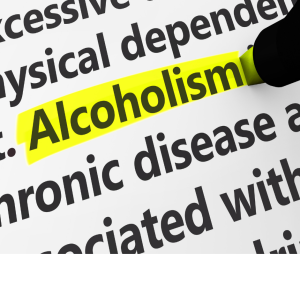
Wednesday Aug 21, 2019
Living With Her Boyfriend While His Drunk Brother Lives in Her Home
Wednesday Aug 21, 2019
Wednesday Aug 21, 2019
TRANSCRIPT:
Alright, we're talking about resentment today, and a lot of folks deal with this issue. It is a brutal issue that affects caregivers; it cripples us; it really does.
A lot of people think if I could just get so-and-so to stop acting this way, then I can be okay, and it's all going to be good. But the problem is not the person we're taking care of, the problem is ourselves, and it starts with us.
We can learn to be at peace no matter what's going on around us, and scripture confirms that throughout all of Scripture. Paul and Silas ...never forget... they were in prison around midnight it says.They were been beaten, I think they were stripped naked and beaten, and around midnight they were singing hymns in prison. (Acts 16:23-26)
Alright?
Wrap your mind around that for a minute. Many of us as caregivers are up around midnight, dealing with all kinds of stuff, and I doubt we've been beaten and I kind of doubt we've been singing hymns. What do they know about Christ, that we need to know, that's going to sustain us?
Peter: Rebecca in Georgia, Rebecca good morning, how are you feeling?
Rebecca: Good morning. I'm pretty good.
Peter: Tell me what's going on with you.
Rebecca: Okay, I'm kind of on the fringes. My boyfriend has a brother, who has been an alcoholic slug all of his adult life. He hasn't worked in 20 years, he's been living off his mother for, and he lived off of her for about 15 until she died. The money in the will was given to my boyfriend to dole out amongst the siblings, especially for his brother. Because he can't handle the money, it would have been gone in a month. So when the mother died, he was about to be put out on the street.
And so we went up to get his brother and brought him down to Florida where we live. We put him in a room at my house; I'm living with my boyfriend two miles away. So we put his brother in a room in my house, he still has no responsibilities. He's 59 years old, and my concern is not for the brother as much as my boyfriend. Because my boyfriend will often say I hope he dies, I can't wait till he dies. And I know that's really not true, I mean we went all the way up to Massachusetts to get him so that he wouldn't be out on the street.
But he has this resentment, because his brother will not help himself, and he does give us a hard time. And he costs my boyfriend money as well. And his brother's money from the trust is about to run out, and I think that resentment is just possibly going to push my boyfriend over the top. Because then he will be supporting his alcoholic brother completely. I don't know what to do for them.
Peter: Well, I don't know that you can do anything for them, but what I can ask you is a couple of questions. One of them is, is your boyfriend's brother still drinking?
Rebecca: Oh, yes.
Peter: Okay. When your boyfriend, and there's a couple of things too went on here. First off you're living with your boyfriend, right?
Rebecca: Correct.
Peter: All right, so let's put that in a box that we will deal with in just a minute. But your boyfriend is enabling his brother, okay. Why should your boyfriend's brother stop drinking? He's got somebody who's taking care of him, he's got resources, and alcohol is more important to him than your boyfriend.
Rebecca: Because his mother made him promise to take care of his brother.
Peter: His mother's no longer a factor here, she's not doing it. And those promises, those are artificial restraints.
Rebecca: This was actually in the will; they had a certain amount of money. And he's giving him his money slowly, because of his mother...
Peter: Right, but does he have to live with him?
Rebecca: What do you mean?
Peter: Is it in the will that he has to live with your boyfriend?
Rebecca: Oh no, he doesn't live with us, we have provided a shelter for him. He is in a different house, but he has shelter. He was about to be put out on the street, so my boyfriend took him in so that he wouldn't be out on the street.
Peter: When you say, take him in, where is he?
Rebecca: He is living in my house, which is like two and a half miles away. I have a house, but I'm not living there anymore.
Peter : Okay. So you and your boyfriend are living together, and your house then is being used by your boyfriend to house his drunk brother.
Rebecca: Correct.
Peter: What part of that do you think sounds really good and normal?
Rebecca: Only the fact that his brother is not out on the street, and he would probably be gone by now.
Peter: Well, is it okay for him to be on the streets?
Rebecca: He wouldn't be able to survive.
Peter: Well, sometimes you're going to have to let go of somebody, and trust that they have a savior and you're not that Savior. Why should he stop drinking? Why should he stop this lifestyle of his as long as he keeps having a place to stay and food and money?
Rebecca: Exactly. But even when he didn't have those things, he was on the street.
Peter: So here's the picture you've painted for me this morning, Rebecca. You've got a guy who is enabling his drunk brother, who's living in a relationship with his girlfriend, but he's not willing to commit to a marriage with her. And you're the same way with him; you've got a lot of dynamics going here.
And all of this is going to get into one big enabling mess, and it's affecting your relationship with your boyfriend, which is not on really great grounds as it is right now anyway. I mean you guys are participating in a relationship that's not a healthy relationship, living together that's not biblical and that's not a healthy relationship. If you listen to this station enough, you know this.
But we'll put that over here on this side of the table, and on this side of the table, you've got a situation where you've allowed this is your house. I'm not one to give out a lot of advice on the show, because what I try to do is trying to point people to safety and say here's what safety looks like.
And in your case, safety is going to look a lot like you going back to your house, kicking that guy out and letting your boyfriend deal with him. And when your boyfriend deals with that in a healthy manner, and he's ready to come back and have a healthy, spiritual, godly relationship with you then you guys can talk. But in the meantime, you're embroiled in something that is not yours to be embroiled in. You have no commitment from this guy, or to this guy; you're letting a drunk guy stay in your house.
Rebecca: Well we do, there is a commitment, but there are circumstances why we are not actually by paper married.
Peter: Well, there may be, but the point is by paper ..that's your house that a drunk guy is staying in, right?
Rebecca: Yes. But that's not the resentment part of it; the resentment is not mine.
Peter: I understand that I get that, Rebecca. My question is still that, why are you giving up your house to go live with the guy, so that his drunk brother can stay in your house?
Rebecca: I moved in with him two years ago, we just went to get him. He lived in a whole different part of the country, but he was being put out, and he was going to be on the street. No money and on the street, and my boyfriend didn't want him to have to deal with that, so he went up to get him and brought him down.
Peter: But it seems awful convenient that he could stay in your house.
Rebecca: Well, that's because his money is not going to last much longer.
Peter: How long will his money last?
Rebecca: It was put into the will that my boyfriend was to dole out the inheritance to his brother because they knew it would be you know gone in a couple of months.
Peter: Yes, I get all that.
Rebecca: About another year and a half left.
Peter: So what would your boyfriend do if you didn't have a house?
Rebecca: He'd have him in our house, where we're living now.
Peter R.: And is that your house, or is it your boyfriend's house?
Rebecca: I'm living in my boyfriend's house.
Peter: Right. So it's not our house, it's his house. Right, I understand, I want you to hear the concept here. You're not staying in our house; you're staying in his house. Do you own any part of your boyfriend's home?
Rebecca: Okay, this is kind of judgmental to me.
Peter: I understand, you called me, though. You called me and told me that you got a drunk boyfriend's brother living in your house, and you're calling you and your boyfriend's house our house. But your house is actually over in another part of town, I understand. But you're in a very vulnerable position that is depending upon the goodwill of your boyfriend, correct?
Rebecca: It depends on what?
Peter: The goodwill of your boyfriend. What if you guys break up, what happens?
Rebecca: No, the brother will be put in, my boyfriend would take his brother out of my house and put him in his house with him, and I would go back to my house.
Peter: Okay, then you go back to your house?
BREAK
Peter: Welcome back the show for caregivers, about caregivers, hosted by a caregiver. This is Peter Rosenberger, bringing you 33 years now 34 starting today, of experience to help you stay healthy as you take care of someone who is not. And I want to go back; we lost the caller. But sorry right into the break, I was trying to unpack a lot of things here, but I want to go back and touch on something.
You've got somebody who is an alcoholic, because of the way the mother set this thing up basically because this guy has been enabled, he's 59 years old. And he is dragging down his brother, who is causing all kinds of frustration for his brother who is dealing resentment. Well his brother's girlfriend, who lives with him, is concerned about the resentment eating up her boyfriend. And yet what's happened is this guy's alcoholism has created its own vortex if you will, it's sucking everybody into the sickness.
Whereas a healthy relationship would be, this girl and this guy, this man, and this woman choosing to be committed to each other, getting married and living a healthy life together. Instead, she's let her house go to the drunk brother of her boyfriend, and she's living over here with her boyfriend, calling it our house but it's not our house. It's his house, she has her house, and this drunk brother is in the midst of it. Do you see how sickness can do this, and it can distort our thinking?
The problem is not just necessarily her boyfriend's resentment, which I'm sure he has. Most people who are involved in any kind of relationship with an alcoholic are filled with resentment. But the problem has gotten so exasperated, exacerbated, it's exasperating, but it got exacerbated because they've chosen to come up with a solution, a workaround if you will, to deal with the drunk brother by letting her own home go to this guy, and she just moves in with her boyfriend.
But if she and her boyfriend break up, if their relationship goes south or something happens with them …then you've got this drunk brother over here in her home, and this guy his sickness is pulling both of them [his brother and his brother’s girlfriend] into two very dangerous places.
And she heard judgmental.
But I'm saying, “You're in danger.”
“You can call that judgmental if you want, but you're in danger because you're at the goodwill of your boyfriend. And if something goes south between the two of you guys, you're going to have to kick this guy out of your house, and you're going to hope he'll leave without causing a lot of problems.”
And then you see how convoluted this can get? Healthy caregivers make better caregivers. And this brother is not healthy, and this brother's drunk brother is going to continue going this way because he doesn't have any reason to stop.
Nobody's putting any kind of barrier to this guy; he's not going to be desperate enough to stop. And you can resent him all you want, but he's not going to change. The only thing that's going to change is the one brother who is watching all this, is going to get more resentful, and it's going to affect him more. And it's going to affect this relationship he has with this woman, who obviously he has a great deal of feelings for. And she obviously has a great deal of feelings for him. And they've got some kind of arrangement. They've kind of figured out to do a workaround instead of just looking at this drunk brother and said “Hey! “Enough is enough, you're a drunk, we'll put some money towards rehab and that's it!”
But this mother set up the will somewhere and everybody's thinking they got to do this and this and this, no. And sometimes you're just going to have to let people fall down and get hurt so that they can start asking for help. And then the two of them can get their relationship back on a healthier plane.
Let me just ask you all this question; I want to ask you, women, a question:
When is it a good time for you to walk away from your own house …this is YOUR house …to move in with a guy when you do not own that house so that his drunk brother can stay in your house?
And when does that make sense?
What are you looking for out of a guy when you think, “Hey, I got an idea let's do this: ‘Let me take your house, and put my drunk brother in, then you come over here to shack up with me!?’”
Is that something … is that a thing now for women that you think that's okay?
Maybe I'm just too old; now I guess I don't know.
But is that a thing?
Is this working for people now?
When you have somebody that is a drunk, that can't handle money, and so you say, “Hey, I really like this guy, but his brother is just a slug (that was her word). I’ll let him come live in my house while I go shack up with his brother, and this will work out.”
888-589-8840. When I point this out, all she hears is judgmentalism, and I'm saying, “Whoa, do you not see how dangerous this is for you?”
This is a dangerous place for this woman. And I'm asking you guys to step back a little bit and think, “Is this a good thing?”
I'm not telling you how to live your life, I'm just asking you, “Is this a good thing?”
And when she refers to our house, it's not our house; it's his house. She has her house, and now she's got a drunk guy living there.
This is what happens when we allow sickness and all these things in it to distort our thinking. We can get incredibly disoriented in this, and we'll start making business decisions, financial decisions, emotional decisions, physical decisions, and we're trying to work around a sickness.
The brother is sick; he is not healthy.
Guess what?
His brother that's taking care of him is also unhealthy, and it will keep doing this, it will keep going.
Alcoholism has no mercy; it will consume your home; it will consume your finances; it will consume your health, it will consume your spiritual health, it will consume everything about you. Alcoholism …addiction… has no mercy, and you have to treat it as such. And you have to be ruthless with it.
You tracking with me? 888-589-8840.
Evidently, there's a lot of people that want to weigh into this kind of stuff, that's just lit up. Greg in Louisiana, Greg, how are you feeling?
Greg: I'm doing well. How are you doing?
Peter: Well, for a man of my age, and limited abilities, I think I'm okay. Tell me what's on your heart and mind?
Greg: I have 15 years clean, a little better than 15 years clean and sober, and enjoyed the conversation that I heard. I agree that the alcoholic brother is being enabled. And I heard a little bit, I mean I'm driving I caught a little piece of it, so I didn't get the beginning so I can't pretend like I know the whole story.
But I did catch the part about there was a will, and so they feel as though they have to continually pay this brother, and they might not see it, but that's enabling him. It would be a better situation; I think that you referred to this; I was kind of in the middle of other things going on also. But if they were to withhold the money, not take it, but withhold it, it's still the brother’s money.
But withhold it, and say after you get in recovery and get your life turned around, then the money is still there it's yours, but I can't give it to you right now to kill yourself. Because you know alcohol will lead to jail, to mental institutions and death.
Peter: Well, that would be the normal thing, I mean that would be the healthy thing to do, but I don't think they're making a lot of healthy decisions at this point. And again there's a lot of enabling, and you're right on the money. And Greg by the way, congrats on 15 years of this all right.
Greg: All right, well, it's all about Jesus Christ, there's no way I could have done it on my own. Tried that, been there done that didn’t work.
Peter: You are absolutely right! Buddy, I appreciate you calling in, and thank you so much. This is Hope for the Caregiver; this is Peter Rosenberger. We'll be right back.
 Gracie: Have you ever struggled to trust God, when lousy things happened to you? I'm Gracie Rosenberger, and in 1983, I experienced a horrific car accident, leading to 80 surgeries and both legs amputated. I questioned why God allowed something so brutal to happen to me, but over time, my questions changed, and I discovered the courage to trust God.
Gracie: Have you ever struggled to trust God, when lousy things happened to you? I'm Gracie Rosenberger, and in 1983, I experienced a horrific car accident, leading to 80 surgeries and both legs amputated. I questioned why God allowed something so brutal to happen to me, but over time, my questions changed, and I discovered the courage to trust God.
That understanding, along with an appreciation for quality prosthetic limbs, led me to establish standing with hope. For more than a dozen years, we've been working with the government of Ghana and West Africa, equipping and training local workers to build and maintain quality prosthetic limbs for their own people. Regularly, we purchase and ship equipment and supplies.
And with the help of inmates in a Tennessee prison, we also recycle parts from donated limbs. All of this is to point others to Christ, the source of my hope and strength. Please visit Standingwithhope.com to learn more and participate in lifting others up. That's Standingwithhope.com, I'm Gracie, and I am standing with hope.
Peter: Welcome back to the show for caregivers, about caregivers, hosted by a caregiver. This is Peter Rosenberger, bringing you three-plus decades of experience to help you stay strong and healthy as you take care of someone who is not.
We've been talking about resentment, but it led us all into these convoluted messes that we can get into as caregivers. And they can …because we will make all kinds of decisions that make sense to us in the middle of it. But we're not getting an objective clarification about where exactly are we “in time and space.”
I go back to what happened with JFK Jr., I think it was you know it was 20-something years ago this month. I think it was, but it's been I think it's around this time of year. And he was in his plane flying his wife and his sister-in-law, and they were going up to Martha's Vineyard, I think. And he was flying visual but not instrument; he wasn't instrument rated on this plane.
And so, he was looking out the window and just seeing the horizon, and that's fine in the daytime on a clear day, but this was at night. And I think there was a lot of cloud cover.
And you could get very disoriented on a plane, for those who've been up in planes you know this, in small planes and so forth. (In large plane you get disoriented!) And if you look out and trust your eyes, and what your senses are telling you, you could become disoriented, and it turns out that's exactly what happened.
And he flew into the ocean and killed himself and his wife and his sister-in-law.
And this is what happens to us as caregivers when we're in the relationship with somebody who is chronically impaired, particularly if there's addiction or alcoholism involved. It leads us into bad decisions. I mean really bad decisions! Because we're not listening to an objective voice that says “Hey, are you sure you're in the right place here?”
And we get all bent out of shape about it, and then we start resenting people who are telling us …like the lady said to me, “I'm starting to hear a lot of judgmentalism.”
I'm not being judgmental! “How is this a good thing? “Are you sure you're in the right place here?”
And if you're in the orbit of an addict, I promise you this thing will go just coo-coo for Cocoa Puffs. And you will get so disoriented, and you will make horrible decisions.
Financial decisions, moral decisions, business decisions, personal decisions, health decisions every part of your life will be affected by this because it disorients you, you get lost in this thing. And you don't know which way is up, which way is down and next thing you know you're flying right into the ocean, and taking everybody, you love with you. This guy somehow convinced this woman to move in with him so that he could use her home to house his drunk brother.
Raise your hand if you think that is a good scenario!
Who here thinks that's a good scenario? Particularly for this woman, who I don't doubt genuinely loves this guy. But is she looking for her best health interest in this thing, is she really thinking of herself healthy-wise? Not selfish wise, just healthy wise. Is this a healthy decision?
This is what happens when addiction comes into our stuff, and we get all convoluted.
And somewhere in all this thing, at the bottom of it you have to kind of dig through it, right at the bottom of this thing, right at the foundation there's sin, and that's the reality of it.
So again, I'm the crash-test dummy of caregivers, I have made some of the most horrible, boneheaded, awful decisions in my life. And I smell dead ends, cul-de-sacs, and catastrophes quickly because I'm very familiar with the territory.
All right, Jim in Texas, Jim good morning. How are you feeling?
Jim: Good morning. I'm doing good. How are you feeling?
Peter: I'm just precious!
Jim: I worked 22 years of mental health; the Lord saved me when I was eight years old, that's around seven years old. I was baptized at 9; I was brought up in a pastor's family. So I know, I know exactly what these people were going through when they're talking about this. Enabling is one of the most diabolical factors that handles a person's life. I see that I saw it every day with the people I worked with at hospitals I worked in. I saw it firsthand in the people that I dealt with.
There are many phases of enabling; there are six different roles in the enabling process. But the primary one is the chief enabler. This is the one that makes sure everything is in order, for the alcoholic to continue his drinking, his or her drinking. Alcoholic to continue his drinking, the drug user to continue their abuse.
Peter: Well, and that's exactly what happened in this case, this guy he has no impediment whatsoever to stop. Until he runs out of money, and then maybe he'll stop.
Jim: He'll find another user or he'll find another enabler.
Peter: Of course, he would. When they run out of enablers, they usually ask for help, or they die, or they get locked up. Well, Jim, I appreciate very much the call and thank you for sharing your long experience and wisdom on this thing.
You're absolutely right, let me go quickly to Paula in Oklahoma, and we'll try to squeeze this in here before the end of the hour. But Jim's actually right on the money there, and they will go through enablers.
His addiction is driving this thing, and this is why I've included this in the whole caregiver conversation. Because when you're taking care of somebody, for example, which has you know physical disabilities, or even you know Alzheimer's or any kind of thing. Where people look at okay, we understand that diagnosis, we get it. When you take care of somebody like that, there's a little clearer-cut path even though it's still kind of murky.
But when you're dealing with addiction, man it is absolutely mind-numbing what it does to people and their decisions. And there's a lot of shame, and there's a lot of guilt, there's a lot of obligation. I talk about the fog of caregivers fear, obligation, and guilt; every caregiver gets lost in this fog. This caregiver’s boyfriend is lost in the fog; he is obligated and guilty fear, obligations, and guilt.
He's afraid the guys going to lose his money, he's obligated to his mother, and he feels guilty if he does something different. Fear, obligation, guilt and he gets lost in that, and somehow he has wrapped this woman into his life and said okay here, let's just use your house to put my drunk brother over here, and we'll do this, that's what happens we make this kind of decisions.
Paula in Oklahoma, I'm going to squeeze you in real quick at the end. Paula, how are you feeling?
Paula: Well I'm doing better, we talked. I think it was last year. I told you about my brother and my mother, and I do have bitterness sometimes, but I keep your book right beside my bed. And I think you said it's not obligated to do it, that's not helpful it's that we want to love the person. Is that what it is? I can't remember.
Peter: Its stewardship.
Paula: It's stewardship, that's it. Because I just gave the book to another lady that I work with, her father died, and now she's caring for her mother. And I said I want it back, and I'm going to buy her asset, but I just wanted to give it to her.
But I just wanted to say that I do still have a little bitterness, but I say that prayer almost every morning in the front of your book, and that helps me so much.
Peter: Well, that prayer is the caregiver’s prayer. But you know what Paula; you know we're always going to deal with this probably until Jesus takes us home. It's not a situation where it's one and done, and so don't beat yourself up for it. That's why we go to Christ; we need a Savior. And I am so proud of you, Paula, you made my day.
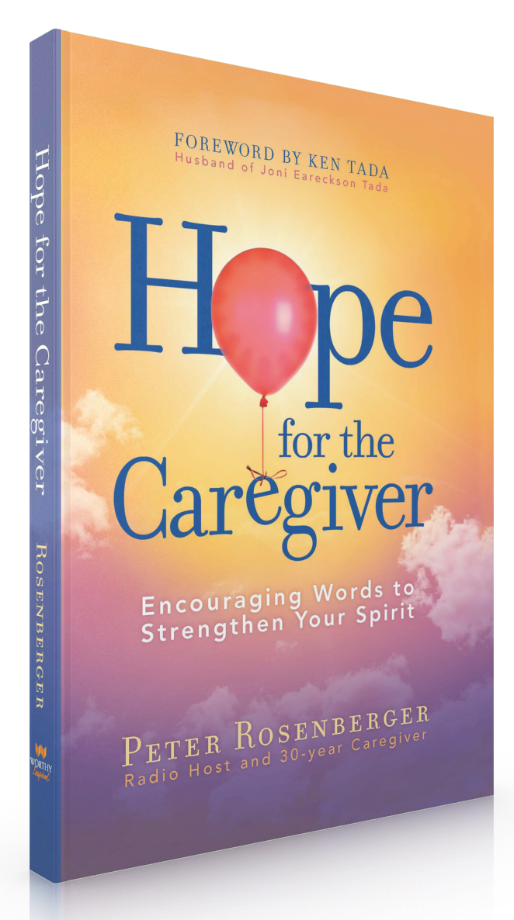
Paula: I just wanted to let you know that I'm doing so much better, but I do kind of fall back. You know I take two steps forward and fall back.
Peter: You know, hey welcome to the club.
Paula: And where is that caregivers, I didn't catch it, but I do have you on my email. But where is it at?
Peter: Which one, the podcast?
Paula: No, the caregiver convention or conference?
Peter: Oh, that's going to be in Richmond, Virginia next Friday in Richmond, Virginia. It's going to be a special conference there; I'll be speaking at. But if you can get to Richmond, that's great, but you may not be able to make it to Richmond. But Paula let me just say, I remember your call, and after I hung up with you my heart hurts so much for you.
And I can't tell you how great it is to hear you and to hear just the pep in your step. And I know it's not everything you want it to be, and I know you still go
t difficult days ahead of you, but you sound so much stronger. And this is what we do as believers; we keep building each other up so that we can be stronger. We're never going to feel better about this, but we could be better, and it sounds like you are in a much better place than you were a year ago.
Paula: I am better. And I also to have a sister who is addicted to pills and her husband is continuously enabling her. And I used to fight that and thinking I could save her until I just was like I give her to her husband and to Jesus.
It's not my job to save her; they're going to fall and bleed I have it posted on my mirrors, quotes that you put in my bathroom mirrors are posted almost everywhere. White water walk, I mean I'm out walking, I exercise every day. And I take trips; I live your book.
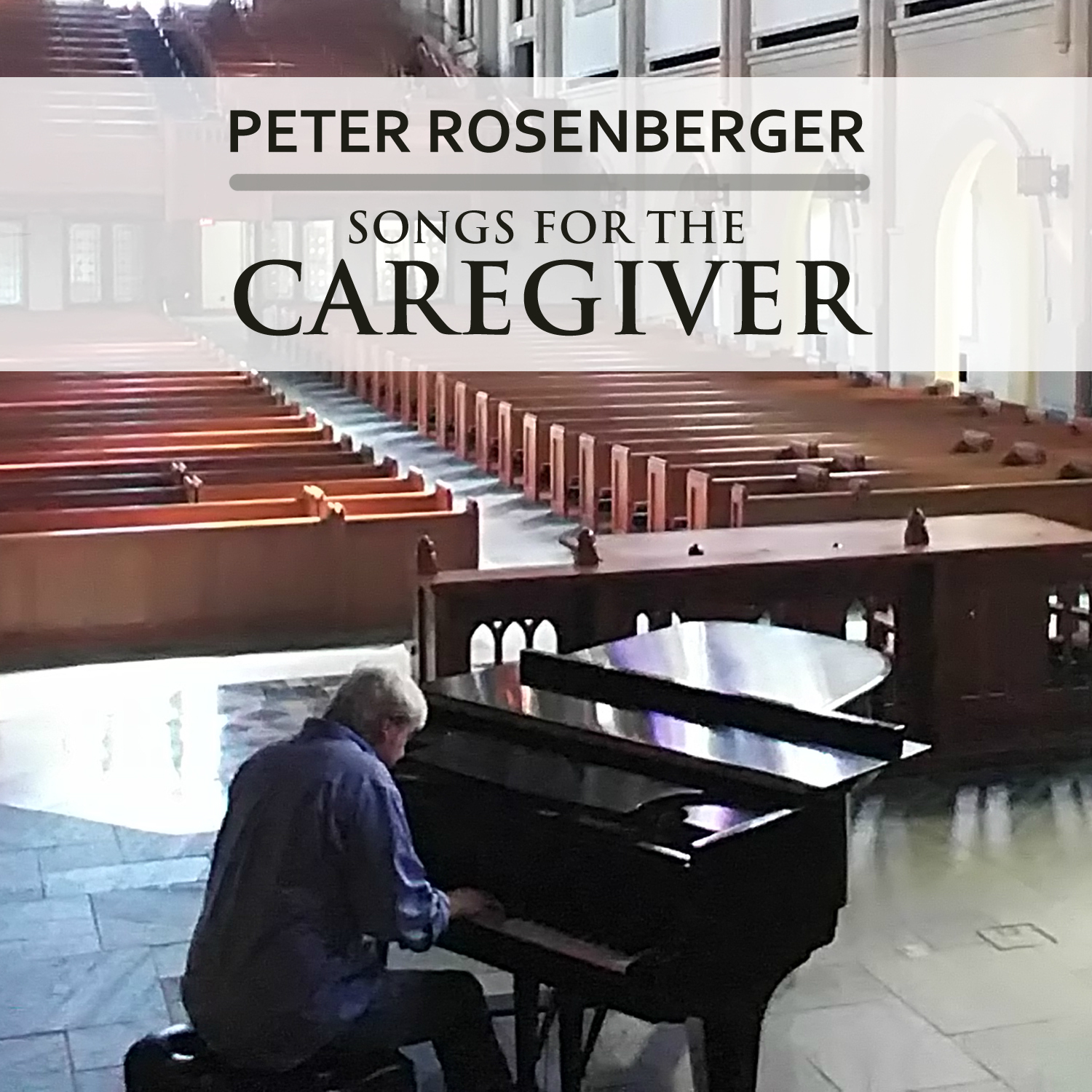 Peter: Well, Paula, so do I, and I have to go back and read it myself. You've made my day Paula! And I tell you what I'm going to do, don't hang up just going to get your information. I want to send you a copy of our CD too, okay?
Peter: Well, Paula, so do I, and I have to go back and read it myself. You've made my day Paula! And I tell you what I'm going to do, don't hang up just going to get your information. I want to send you a copy of our CD too, okay?
Paula: Okay, thank you.
Peter: Just because you made my day. So don't hang up, we're going to get your stuff here.
Hey, listen, everybody look down at your hands, if you don't see nail prints this isn’t yours to fix, okay? If you don't see nail prints, this isn't yours to fix; we have a Savior.
Hopeforthecaregiver.com.
[End of Recorded Material]

Tuesday Aug 20, 2019
Taking the Show To Sirius XM's Family Talk Channel
Tuesday Aug 20, 2019
Tuesday Aug 20, 2019
On 9/1/19, HOPE FOR THE CAREGIVER expands to the Family Talk Channel (131) on Sirius XM.
Sundays (starting 9/1/19) at 6 PM Eastern, we will be LIVE!
In addition, we're live each Saturday morning at 8 AM Eastern on American Family Radio.
Our mission is simple: We're going to point family caregivers to safety.
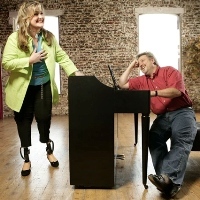
Drawing upon more than three decades of experience, a whole lot of mistakes (I am the "crash-test dummy of caregivers"), and a goofy sense of humor, we're going to strengthen fellow caregivers ...one weary heart at a time!
Gracie asked if she could record one of our promos. What do you think?
The podcast will still be available and free, so make sure you follow/subscribe
Brought to you by Standing With Hope
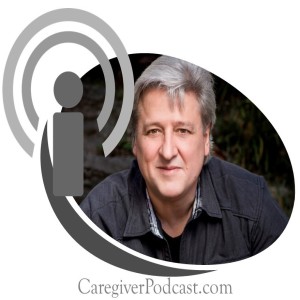
Monday Aug 12, 2019
When the World Throws Death as a Solution, We Can Speak Life.
Monday Aug 12, 2019
Monday Aug 12, 2019
Portion of HOPE FOR THE CAREGIVER Monologue 8/10
"...The whole point of this is to speak clarity to a caregiver so that we're not floundering around wondering, you know, where do we go next? What do we do? What's going on? And I go back to this whole thing with gun safety.
I think a lot of people rush to push their political ideology and very few people are rushing to push this in a ministry capacity, and if you think about this, with all of our [United States’] clergy combined, even those from different faith, we can still ask the same question, are the firearms secured?
Think about praying with the mother in despair over her addicted child. You don't have to wait for legislation. You could go ahead and ask the question now, hey, does this kid have access to guns?
And you know, you're not going to stop it. I mean, somebody just went on a rampage with a knife. I mean, we can't exactly go out there and pass legislation to get to knives.
Well, we can, but legislation doesn't do anything, y'all know that and even if it does, it's still not going to do anything until they pass it—I'm talking about something today, right now that you could do.
Think about, think about if this man yesterday who shot and killed his wife and then killed himself over healthcare issues down in Florida. If somebody spoke life to this man, what a different outcome that would be. You can't insure it. You can't make it happen that way, but you give them a fighting chance and you know, results are in God's department, but we have a responsibility to be stewards of this message. Are we just glad we got our salvation, glad we got our knowledge —and then everybody else is just on their own.
I mean, don't we have to be responsible with the information that God has entrusted to us to be the light of the world? And if we're not going to speak light into these situations, who, who are they going to listen to? You know, when you've got states passing medically assisted death and they're all just gung-ho to, to pass that so that you know, physicians could provide drugs that go ahead and take a patient out. How big a leap is it for a caregiver to go ahead and just take matters in their own hand and say, okay, let's just be done with this? When you got a governor of Virginia who is a doctor himself saying that if a child with special needs is born and it's severely deformed, we're going to put the child aside and make it comfortable and then we'll let the mother make the decision on whether or not we'll execute the child.
How big a leap is it for a family with a special needs child that has pushed him to the breaking point to go ahead and just end that child's life? Don't tell me it doesn't happen, it just happened in Oregon a year ago this month. Well, the 28-year-old girl who took a gun and shot her child and then turned the gun on herself. Over in Dixon, Tennessee, a father of a special needs boy, if nonverbal Autistic boy, beat him to death and the mother watched. Then he told the community that child ran off, which happens with Autism. There's a lot of problems with elopement.
There are dark thoughts that that get into these people's minds, to all our minds. [It] is scary. It gets into all our minds and if we're not hearing words of life on a regular basis, who are we listening to? What are we listening to?
The world is increasingly throwing death as a solution to us. Think about it. Look at all the headlines. Don't just take my word for it. Look at it yourself. The world is throwing death as a solution. Medically assisted death, abortion. When Roe versus Wade was passed and set up as the law of the land …and I watched Bill de Blasio this week argue about it— and he was asked point blank by Sean Hannity, "Do you believe that an abortion, that a woman can have an abortion all the way to the moment of birth … and he wouldn't answer the question, he would just simply say, "I believe in Roe versus Wade."
Well, I don't believe in Roe versus Wade! I believe that our Savior bore the penalty of death and we don't need to use death as a solution. But these people are not going to be content until they can eliminate by killing anything that makes them feel uncomfortable or in any way unpleasant.
Don't take my word for it. Look at the media every single day. “Well, I wouldn't want to live with this and this and this.”
Well, you don't know what you want to live with! My wife lives with more pain than anybody I know; her body is so broken and yet she has value with what she does, and she trusts God with her pain, and He speaks to her in it.
C.S Lewis said that you don't, suffering is God's megaphone to us. and the world is going to continue to reinforce this [Death] over and over and over, until we get rid of people with disabilities, people who are aging, who have outlived their usefulness according to the world, [or] children that we do not want.
You look at Barack Obama, he said some years ago that if his daughter makes a mistake, he doesn't want her to be punished with a baby. These were his words, they're not my words, they are his words.
And "anything that is undesirable, we need to get rid of." That's what the world says, the scripture tells us something far different ...that we trust God with these things that come along in our lives that are, that are challenging, that are painful.
We hang on to Him in this—not just look for some way to just go ahead and pull the trigger and be done with it. But our natural inclination is to want to be free of all this pain and sorrow and suffering and unpleasantness or fear, whatever it is we got to deal with. So, let's just kill it. We don't have any more money for, to, you know, healthcare, whatever but let's just go ahead and take our own lives and be done with it.
This is happening now. It happened yesterday in Florida. Go look at the news.
So, what are we doing about it? What are we doing about it?
This show is dedicated to speaking to those people who are watching this unfold, who are so discouraged as they watch someone else suffer—to go into that heartbreaking place, and point them to a path of safety.
I get it. I truly get it, but God has not abandoned you. God is not forsaking you. This is not some kind of goofy punishment. He's not arbitrary. He is not reckless. He is not whimsical. He is God all by himself, and He alone is working in ways that we cannot possibly fathom …and so, we learned to trust Him. A lady wrote me last week on her Facebook page. Her husband has seizures all the time, and their nine-year-old boys said, “Why would God do this to us?”
[Music starts]
I remember our nine-year-old asked when his mother (Gracie) just kept going through surgery, after surgery—losing legs and everything else. He said, “How can I trust God with my hurts … when I see what He allows mom to go through?”
And I answered him with wisdom that I didn't know, it wasn't my wisdom and I said, “You know what, I don't understand all these things, but I know that He stretched out his arms and gave his life for us. If he loves us that much, I'm going to trust Him.
This is Hope for the Caregiver; we'll be right back.
Hope for the Caregiver is the family caregiver outreach of Standing With Hope - a ministry committed to the wounded and those who care for them.

